The lessons Horizon: Zero Dawn can learn from 12 years of Monster Hunter
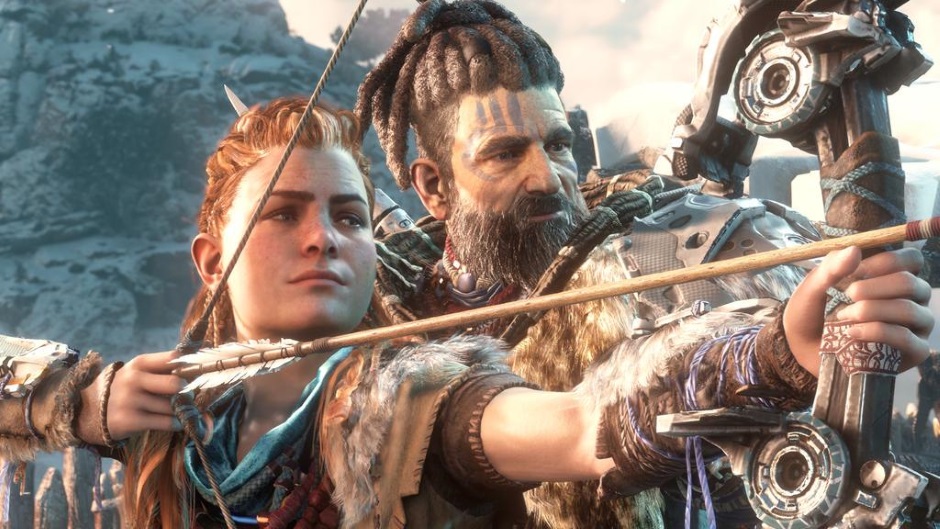
For ages it was an obscure, niche series confined to Japan and a handful of hardcore otaku. However, the past few years have seen Monster Hunter’s popularity explode, and it has even spawned an entire new genre, hunting games that task players with stalking giant monsters to harvest their most valuable bits and craft potent new equipment (with which to then hunt even larger monstrosities). Alongside the increased visibility of the main Monster Hunter titles themselves, a series of pretenders (God Eater, Soul Sacrifice, Toukiden: Kiwami, et al.) has emerged to bite off some of Capcom’s style. Even venerable RPGs like Final Fantasy have started incorporating convoluted monster hunting quest lines; Final Fantasy 15 includes almost an entire bespoke Monster Hunter-alike inside its roomy open-world.
But after 12 years (the original Monster Hunter dropped in March of 2004), the original formula is growing stale. Horizon: Zero Dawn has the potential to be not just another Monster Hunter derivative, but the next evolution of what’s become a very popular template. While progressing a genre in a way that the genre’s progenitor hasn’t been able to is a mighty task, Guerrilla Games is fortunate in that it has so many years of experience, and so many other would-be successors, to study. So how do they pull it off? I’ve collated the most important lessons Horizon needs to take to heart about what to adopt (and what to avoid) from some of Monster Hunter’s greatest hits.
Build a connected world
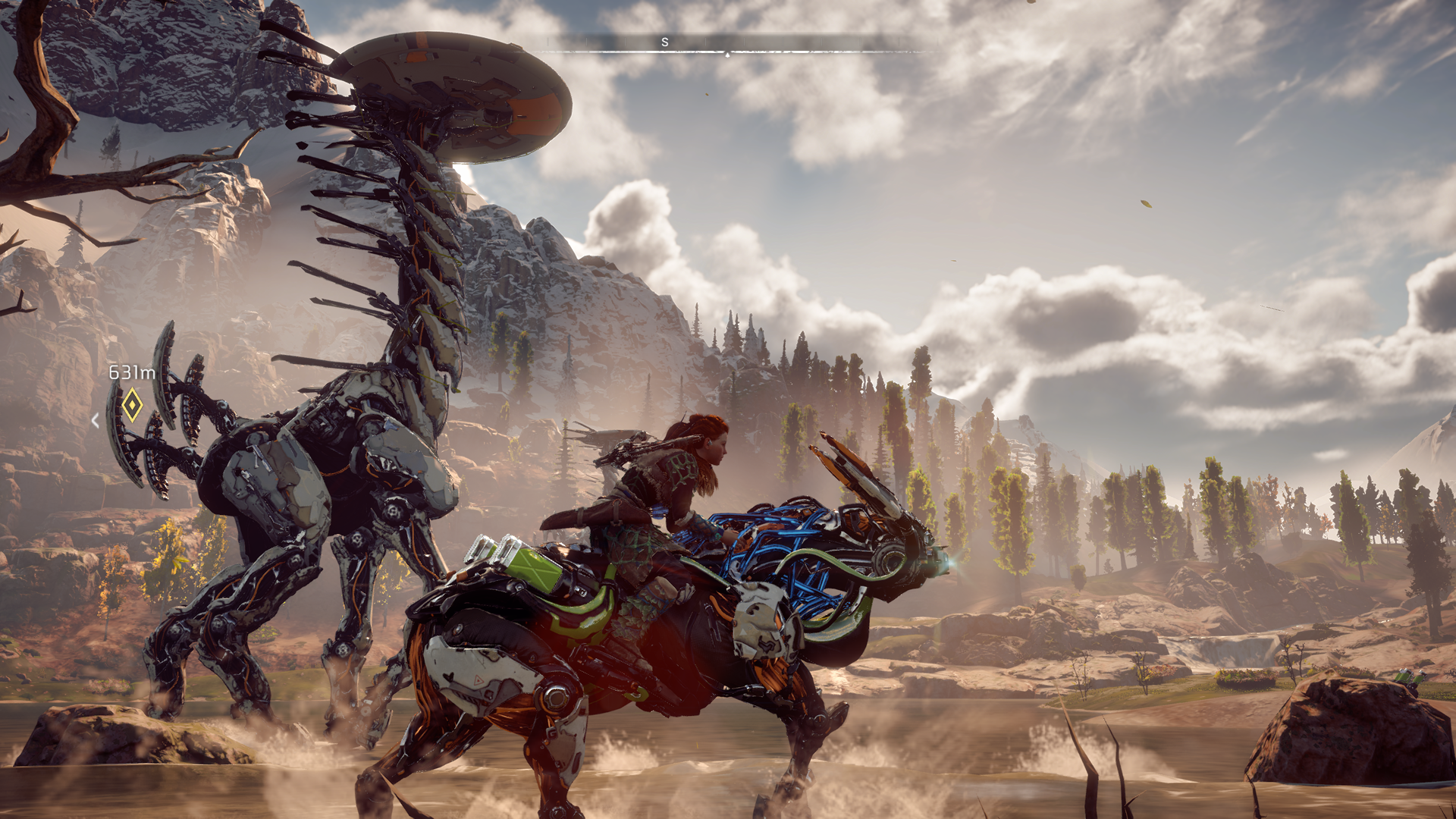
While the segmented zones in Monster Hunter are a distinctive feature of that series, they feel more like a concession to hardware limitations than a stylistic choice. Repeatedly pausing to load new zones as you try to chase a monster to its lair just serves to break up the flow of the action, especially when you’re in the middle of a particularly gruelling hunt (or fighting your fifth Rathalos trying to farm a rare plate).
One of the problems with the way Monster Hunter fragments its zones is that it ends up feeling less like you’re playing in one massive world and more like you’re moving from one tiny, disconnected island to the next. It diminishes the whole experience and makes hunts feel smaller in scale, less grand. So the more seamless and connected Horizon’s world, the better. From all appearances, Horizon is a game replete with expansive vistas and towering creatures, and the best way to immerse players in that sort of lush setting is to avoid repeatedly breaking them out of it with static loading screens.
Make your upgrades feel meaningful and empowering
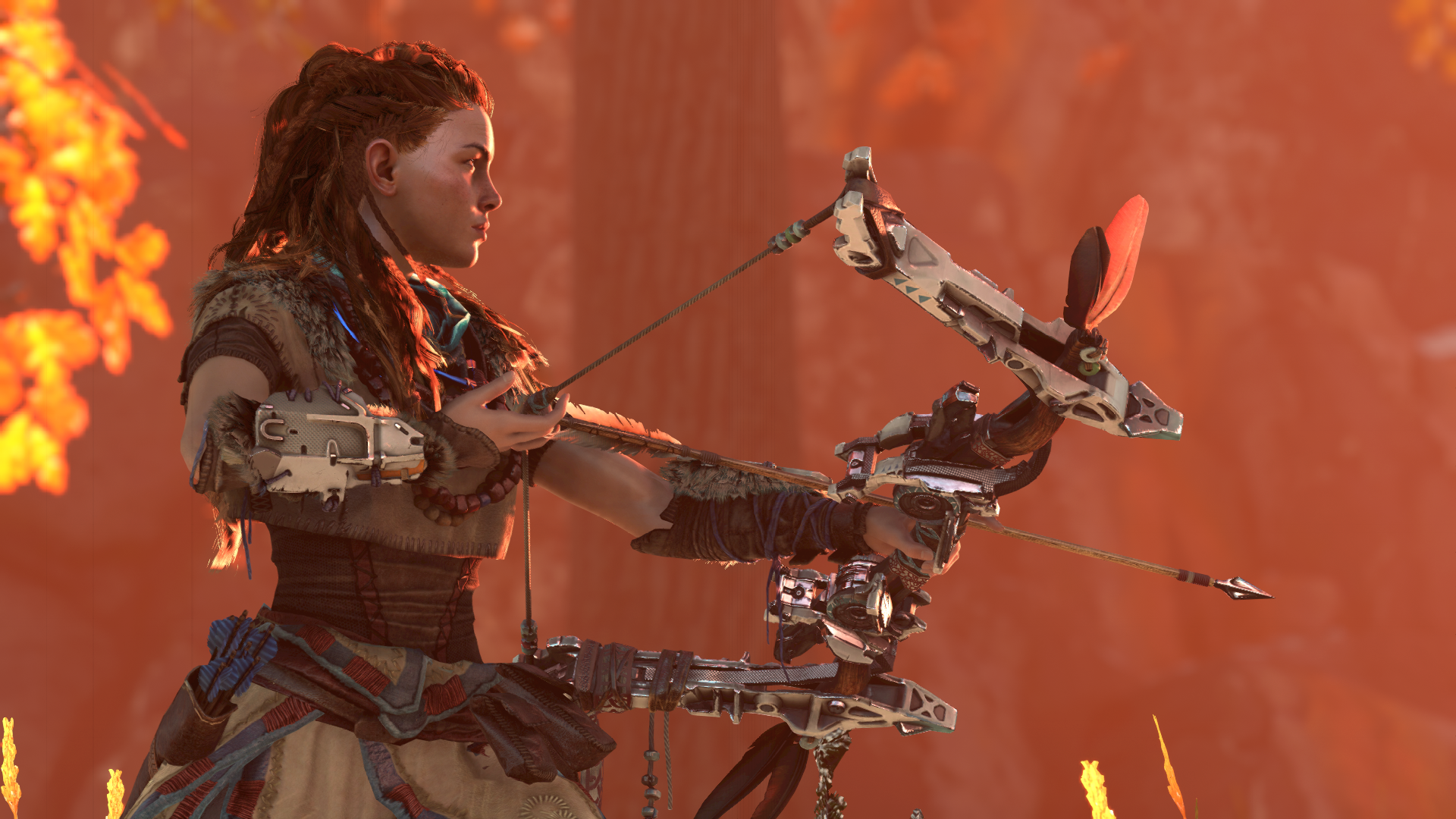
Something Monster Hunter has always done exceptionally well is making each upgraded weapon or set of armor feel like a huge step forward. You not only feel instantly more powerful but you look the part too, your fresh kit bristling with the spikes, scales, and teeth of whatever monstrous behemoth you felled to craft it. While many games are just now learning how critical a character’s appearance is to player experience (and making a mint selling cosmetic items), Monster Hunter has always appreciated the importance of looking like a heroic slayer of beasts.
Horizon has a great opportunity here to incorporate the look of some of their crazy robotic monsters into player gear. All of those chromed out cybernetics and hard metallic ridges would look great adorning a player’s armor, or integrated into some elementally-charged melee weapons. Even better, the disparity between the primitive look of the player and their tribesmen and the high technology of the robotic fauna provides a chance for the player to start the game looking like a prehistoric hunter, and end the game looking like something more akin to a Predator, a techno-organic killer draped in high-tech future armaments.
Streamline the grind
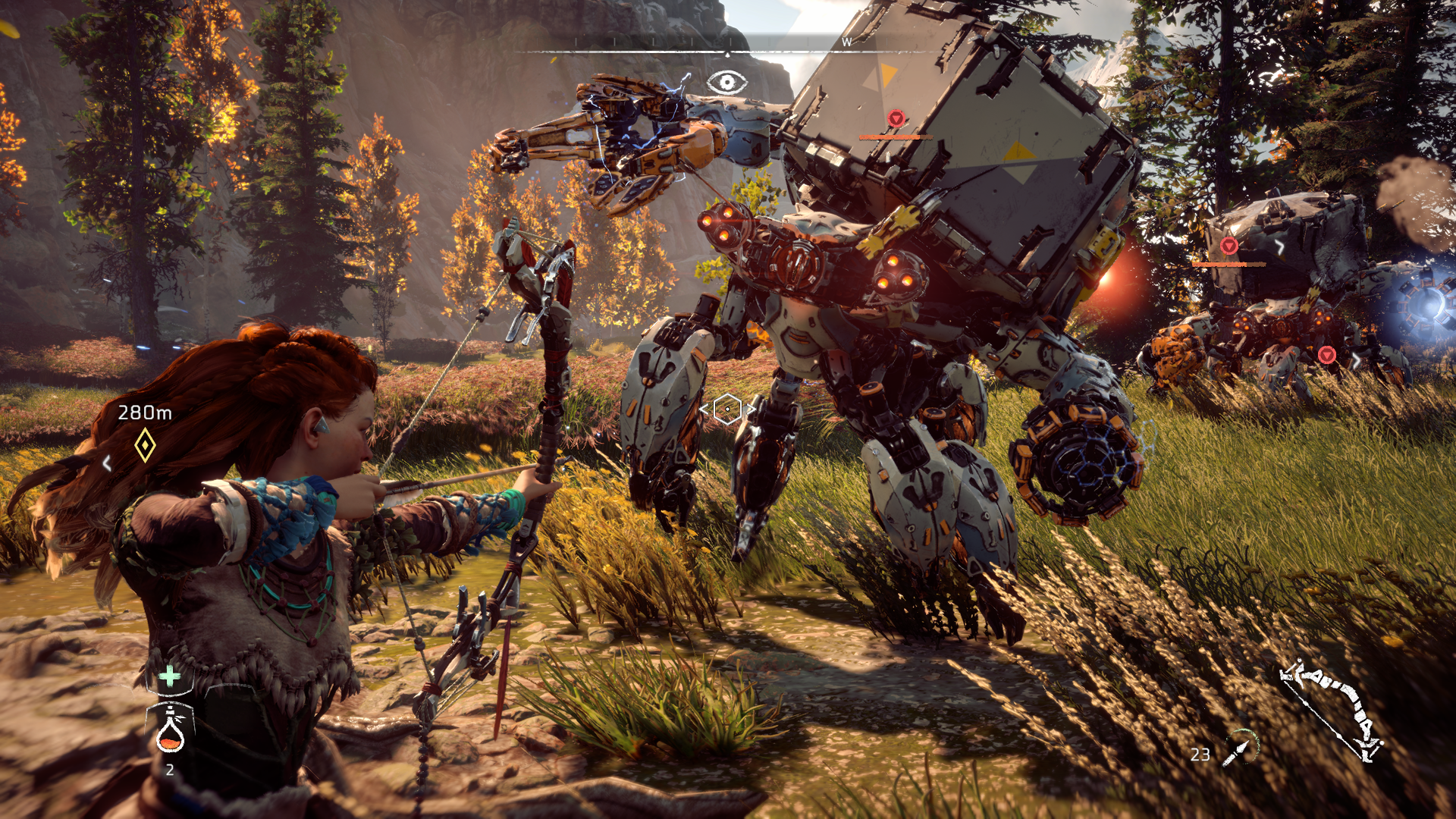
While there’s something to be said about working hard to attain something you want really badly, even in a virtual world, this axiom has its limits. And Monster Hunter tends to stretch those limits to the breaking point (or, some would argue, sadistically shred them), often rewarding hours of hard work and countless brutal hunts with nothing but trifles. Sure, there may be something close to ecstatic relief associated with finally landing that Gobul Lantern+ after four hours of farming, but most players will have long since bowed out in frustration (and found more reasonable ways to spend their time).
Weekly digests, tales from the communities you love, and more
We’re not asking for handouts, but players do expect a reasonable return on the time and effort they invest in a game. A little RNG is fine, but it needs to be weighted against a generous amount of tasks with explicit, guaranteed rewards. Striking that balance will be one of Horizon’s most important tests.
Make your combat distinctive and memorable
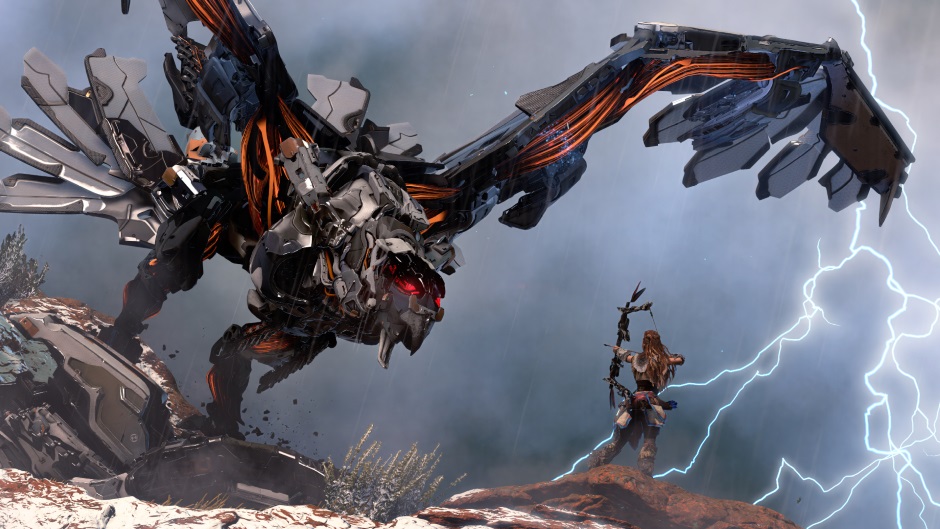
While Monster Hunter’s emphasis on animation priority over lightning-fast combat is one of its most divisive features, it’s also one of its most memorable and important. More than anything, that thoughtful combat (that manages to feel intense and kinetic even as it requires a studied and tactical approach) is what I think of first when I think of Monster Hunter, and it’s the main thing that keeps me coming back to a series that hasn’t evolved much in its 12 year history.
While Horizon doesn’t need to directly mimic Monster Hunter’s combat, it does need to create a combat experience that feels satisfying. Combat is always going to be the most important part of any monster hunting game, and likely the element that players will spend the most time with, so at the very least it needs to be entertaining and diverse. But if Horizon wants to really succeed Monster Hunter as the leader in that genre, it needs to also be addictive and distinctive, a unique experience you can’t get anywhere else.
Tell a story that motivates the player
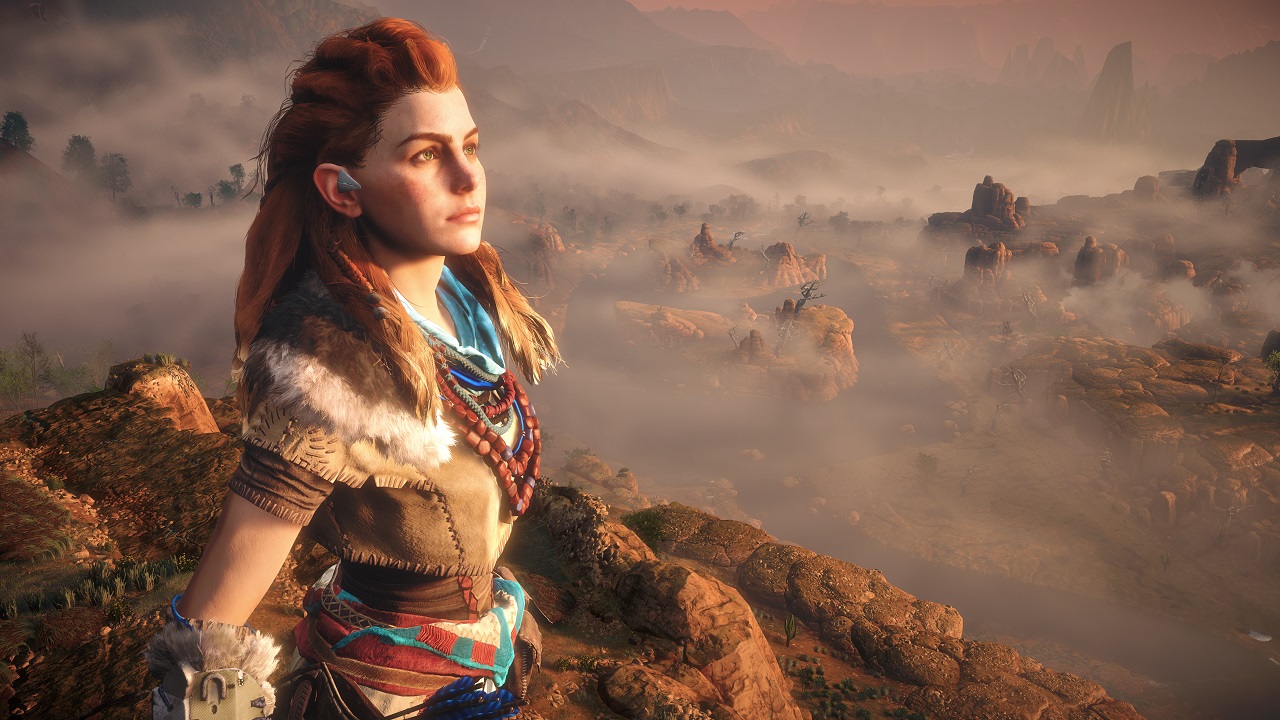
One of the main complaints I hear new players voice about Monster Hunter is about the afterthought of a narrative. You can only get so much traction out of the idea that “players tell their own story,” especially when you’re trying to sell it for the umpteenth time. While upgrading your gear and honing your skills is a good carrot, it would be much better motivation if it were mixed with an interesting story.
We’re not saying Horizon needs to be the Citizen Kane of video games. But even a basic story and a handful of interesting, multi-dimensional characters would go a long way to improving on the Monster Hunter outline. And the world of Horizon certainly seems chock full of hooks on which to hang an interesting story. What happened to decimate humanity, where did these robot animals come from, and did how the world end up in its current state?
The idea that a game like Monster Hunter should motivate players with the desire to find out what happens next shouldn’t be such a novel concept, but sadly it is. As a long time Monster Hunter fan, the idea of a game of its ilk set in a mysterious world with an interesting story and some actual character progression sounds irresistible. Here’s hoping Horizon will deliver.
Alan Bradley was once a Hardware Writer for GamesRadar and PC Gamer, specialising in PC hardware. But, Alan is now a freelance journalist. He has bylines at Rolling Stone, Gamasutra, Variety, and more.



